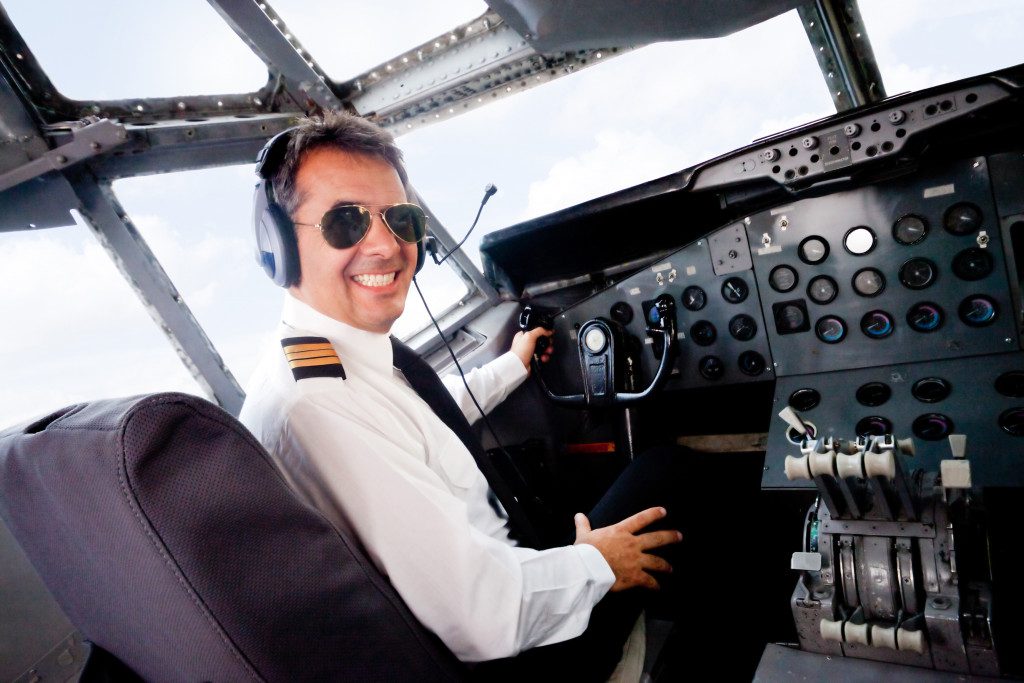- Becoming a helicopter pilot requires dedication, skill, and knowledge.
- Understand the requirements for becoming a pilot, including education and training, achieving flight hours, passing exams, and maintaining your license.
- Financial planning and commitment are essential in budgeting for the costs associated with training and dedicating sufficient time to the process.
- Choose the right training path and embrace continuous learning to stay up-to-date on technological advances, regulations, and best practices.
- Select a reputable helicopter flight school with experienced instructors and a modern fleet of aircraft.
Navigating the skies as a helicopter pilot is an exhilarating experience that few enjoy. The freedom, the view, the thrill of controlling such a powerful machine — an ambition that requires dedication, skill, and knowledge. If you’re keen on taking the helm and soaring through the skies, here are five critical tips to guide your journey.
1. Understand the Requirements
First and foremost, you need to get familiar with the prerequisites. Different countries have different standards, but generally, you’ll need to be of a certain age (usually at least 18), have a specific number of flight hours, and pass both written and practical exams.
Here are the requirements for a helicopter pilot:
Education and Training
Acquiring the right education and training forms the foundation of your journey to becoming a helicopter pilot. It often involves enrolling in a flight school accredited by the aviation authority in your country. Here, you will undergo ground school instruction and flight training. The ground school equips you with theoretical knowledge in navigation, meteorology, and aviation law, while flight training provides practical skills, from take-off to landing and emergency procedures.
Achieving Flight Hours
Accruing the required flight hours is a critical aspect of your pilot training. The number of flight hours required can vary depending on the regulations of your particular country’s aviation authority. Generally, you must accumulate specific flight hours under different conditions and scenarios, such as cross-country flights, night flights, and instrument training, to ensure you are well-rounded and prepared for any eventuality.
Passing the Exams

Success in written and practical exams is necessary to obtain your helicopter pilot license. The written exam, consisting of multiple-choice questions, tests your theoretical knowledge on various topics, including meteorology, navigation, and aircraft operations. The practical test, often called the flight test or check ride, assesses your ability to operate a helicopter safely and efficiently.
Maintaining the License
Once you’ve obtained your helicopter pilot license, it’s vital to maintain it. This typically involves regular medical examinations and recurrent training to keep your skills sharp and up-to-date. Some aviation authorities also require specific flight hours each year or period to ensure ongoing competency. Always stay aware of the maintenance requirements for your license to avoid any potential complications or lapses.
2. Financial Planning and Commitment
Training to become a helicopter pilot is a significant investment. Between lessons, ground school, exam fees, and other associated costs, you’ll need to ensure you have the financial capacity to see your training through to the end. It’s advisable to research the total costs beforehand and budget accordingly.
Commitment goes beyond finances. The time and dedication required are equally essential. Training sessions, study time, exams, and the many hours you’ll spend in the air will demand a considerable chunk of your life. Be prepared to dedicate months, if not years, to your goal.
3. Choose the Right Training Path
There are various paths to becoming a helicopter pilot, from military training to civilian routes. While the military often covers training costs, it also involves a longer-term commitment. The civilian route, on the other hand, is quicker but requires self-funding. Determine which pathway aligns with your personal and career goals.
When considering the civilian route, consider the type of flying you want. If you’re keen on flying for emergency services or in challenging environments, you may need specialized training beyond the basic qualifications.
4. Embrace Continuous Learning

The initial certification is just the beginning of your learning journey. Helicopter piloting requires ongoing education. Technologies evolve, regulations change, and new flying techniques emerge. Staying updated is not just about being a competent pilot; it’s about ensuring the safety of yourself and others.
Join helicopter pilot communities and associations. These platforms can offer seminars, training updates, and the chance to connect with experienced pilots. Networking can provide mentorship opportunities and the chance to learn from those already established in the field.
5. Select the Right Helicopter Flight School
Finding a reliable helicopter flight school is crucial. A helicopter flight school will provide the training and mentorship needed to become an experienced pilot. They will also guide you through the certification process and answer any questions or concerns.
Look for schools with experienced, certified instructors, a modern fleet of aircraft, and courses tailored to your needs. Be sure to check the school’s reviews, ratings, certifications, and testimonials before settling on one.
In Summary
Training to become a helicopter pilot is a rewarding yet challenging journey. It demands time, commitment, continuous learning, and a significant financial investment. By understanding the requirements, planning your finances, choosing the right training path, embracing continuous learning, and selecting a reputable helicopter flight school, you position yourself for success in the skies. As with any significant endeavor, thorough preparation and informed choices will be your best allies.

